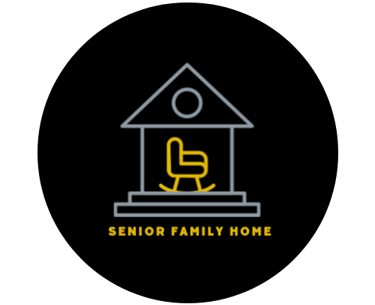Making an Informed Choice: Navigating Aging in Place and Senior Communities for a Fulfilling Future
Welcome back to our blog series on Aging in Place vs. Senior Communities! In our previous post, we delved into the pros and cons of these two options for older adults. Today, we continue the discussion by focusing on the importance of making an informed choice when it comes to deciding how and where to age gracefully.
In this follow-up blog post, we will explore key considerations that can help you make a well-informed decision. We'll discuss the process of assessing personal needs and preferences, the benefits of hybrid options that combine elements of both aging in place and senior communities, and the significance of seeking professional guidance and support. We understand that this decision is unique to each individual, and our aim is to provide you with the information and insights you need to make the best choice for yourself or your loved one.
Whether you're weighing the advantages and challenges of aging in place or contemplating the benefits of senior communities, join us on this journey as we delve deeper into the factors that can shape your decision-making process. Let's explore the options, evaluate the pros and cons, and empower ourselves to create an environment that promotes health, happiness, and fulfillment in our later years.
If you missed our previous blog post on Aging in Place vs. Senior Communities, be sure to check it out on our website for a comprehensive overview of the topic. Stay tuned for more valuable insights and guidance in our ongoing series. Together, let's navigate the choices and opportunities that lie ahead on the path to successful aging.
Assessing Personal Needs and Preferences
When it comes to making a decision about aging in place or moving to a senior community, it's crucial to assess personal needs and preferences. This involves a comprehensive evaluation of physical, emotional, and social needs. Understanding these factors will help individuals determine the level of support and care required to maintain a fulfilling and comfortable lifestyle.
In assessing physical needs, it's essential to consider any existing health conditions or mobility limitations. This includes evaluating the ability to perform activities of daily living independently and identifying any specific medical needs that may require specialized care. Emotional well-being should also be taken into account, as mental health and social connectedness play vital roles in overall quality of life. Considering individual preferences for lifestyle and social engagement is equally important. Some individuals may thrive in an active and vibrant community setting, while others may prefer the familiarity and comfort of their own home.
Exploring Hybrid Options
For those who find it challenging to make a definitive choice between aging in place and moving to a senior community, exploring hybrid options can offer a middle ground. Hybrid options involve combining the benefits of aging in place with the utilization of community-based services. This approach allows individuals to maintain their independence and familiar living environment while accessing necessary support and resources.
One example of a hybrid option is utilizing home care services. This involves hiring caregivers who can provide assistance with activities of daily living, medication management, and other essential tasks while allowing individuals to remain in the comfort of their own homes. Another hybrid option is considering assisted living facilities. These facilities offer a balance between independence and support by providing residents with access to various amenities, social activities, and assistance with daily tasks as needed.
Seeking Professional Guidance and Support
When faced with the decision of aging in place or moving to a senior community, seeking professional guidance and support can be invaluable. Consulting with healthcare professionals, such as geriatricians or primary care physicians, can provide insight into individual health needs and the level of care required. They can offer recommendations and referrals to appropriate resources based on a comprehensive assessment.
Geriatric care managers or social workers can also be instrumental in the decision-making process. These professionals specialize in assisting older adults and their families in navigating the complexities of aging and long-term care. They can help evaluate personal needs, explore available options, and provide guidance throughout the decision-making journey.
In addition to professional guidance, engaging in open conversations with family members and loved ones is crucial. Including them in the decision-making process ensures that everyone's concerns and preferences are taken into account. Family members can offer valuable insights and support, and their involvement can foster a sense of unity and shared responsibility in making the best choice.
By assessing personal needs and preferences, exploring hybrid options, and seeking professional guidance and support, individuals can make an informed choice about aging in place or moving to a senior community. Each individual's journey is unique, and it's essential to consider personal circumstances and priorities when making this important decision. Remember, the ultimate goal is to ensure a safe, fulfilling, and comfortable environment that promotes overall well-being and quality of life.






